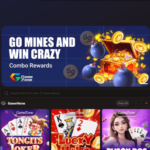Since it split Messenger off from the main app last spring, Facebook has gradually laid the foundation for its messaging platform to become the Western world’s answer to Asian giants like LINE and WeChat: mega-messengers that combine communication, gaming, e-commerce, and other categories into a single lucrative channel. It added video and voice calling; it added a way for users to send cash for free; and it hired away PayPal’s well regarded CEO to run the product.
And now it’s a platform: in the biggest announcement of the day, Facebook introduced 47 apps that now integrate natively with Messenger. For starters, Facebook worked with companies that offer enhanced forms of self-expression: there’s Ultratext, for sending flashing neon text GIFs; Camoji, which creates short GIFs using your phone’s camera; and dozens more apps that tweak messages in various ways
Videos you post on Facebook can be embedded elsewhere online. Previously, if you uploaded a video to Facebook, you could only share the video by linking to it. This is another attempt to make it more attractive for people to upload their videos on Facebook instead of YouTube.
Writing about Asian mega-messengers last year, Thompson wrote: “the sky is the limit. Both have effectively built platforms on top of iOS and Android and smack dab in the middle of the most meaningful, and thus most-used, part of our lives: our communication and interaction with those we know and care about.” Today Facebook has wandered directly into the fray. It may not work as Facebook planned — Messenger’s previous incarnation, as a would-be replacement for email, fizzled — but all the pieces are in place. The golden child is growing up fast.
source: mashable, techcrunch, theverge









